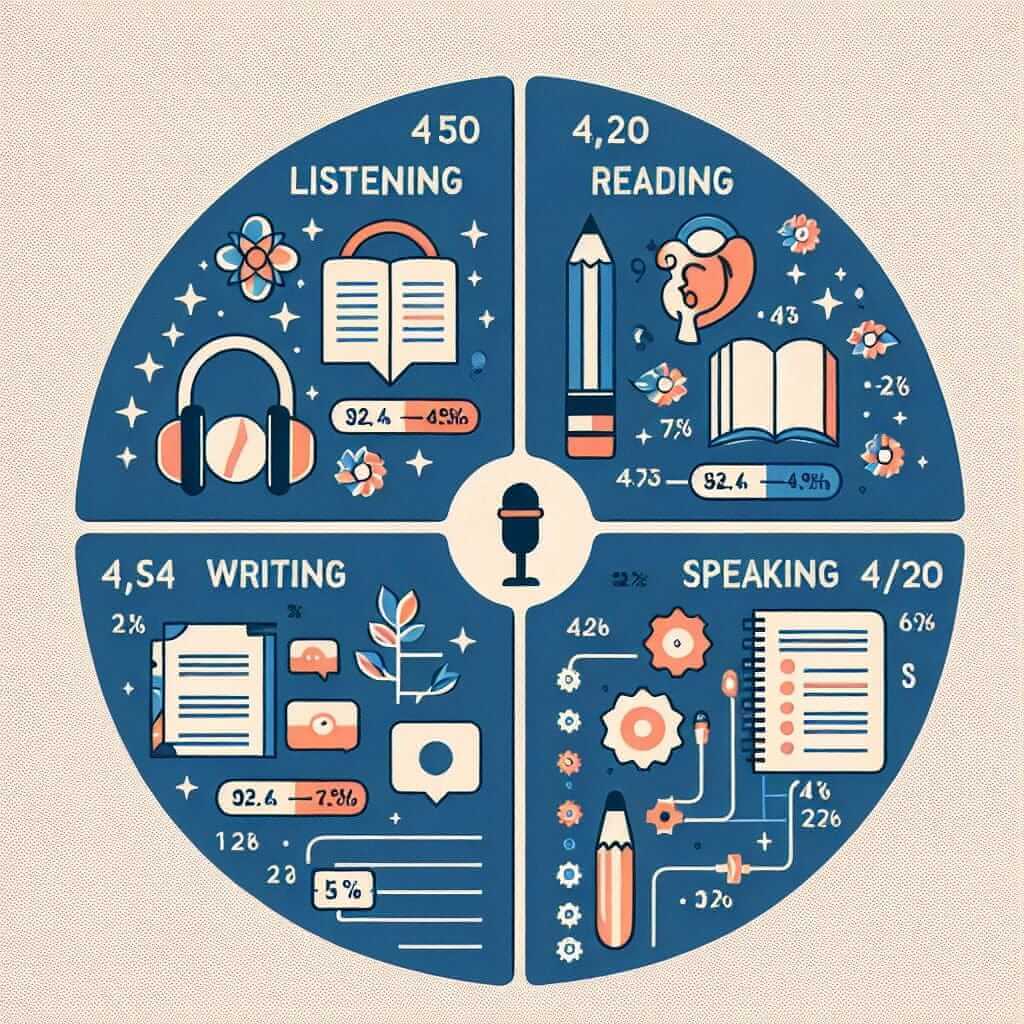Understanding the Importance of IELTS
The International English Language Testing System, or IELTS, is a globally recognized English proficiency test. For those aspiring to study, work, or migrate to English-speaking countries, IELTS has become a crucial steppingstone. This essay delves into the intricacies of IELTS, providing a detailed roadmap for prospective test-takers.
Deciphering IELTS: Format and Structure
IELTS evaluates candidates on four key aspects of English language proficiency:
1. Listening: This section assesses your ability to comprehend spoken English, encompassing a variety of accents and contexts.
2. Reading: This module gauges your reading comprehension skills, requiring you to interpret information from diverse written sources.
3. Writing: This part evaluates your written communication skills, demanding clarity, coherence, and grammatical accuracy.
4. Speaking: This section assesses your spoken English fluency, vocabulary, and pronunciation.

Crafting a Winning IELTS Preparation Strategy
Achieving a desirable IELTS score necessitates a structured and dedicated preparation plan. Here’s a breakdown of effective strategies:
1. Familiarize Yourself with the Test Format
Start by understanding the test format, question types, and time constraints. Numerous online resources and practice tests accurately reflect the actual exam experience.
2. Enhance Your Vocabulary
A rich vocabulary is paramount for excelling in IELTS. Make a habit of learning new words daily and practicing their usage in sentences.
3. Master Grammar Rules
Brush up on your grammar skills, focusing on tenses, sentence structure, and punctuation. This foundation is crucial for both writing and speaking sections.
4. Cultivate Active Listening Skills
Engage in regular English listening practice, exposing yourself to diverse accents and audio materials.
5. Practice Writing Different Essay Types
Familiarize yourself with different IELTS essay types and practice writing within the stipulated time limit. Seek feedback on your writing to identify areas for improvement.
6. Simulate the Speaking Test Environment
Practice speaking English regularly, focusing on fluency, pronunciation, and clarity. Mock speaking tests with a partner or tutor can significantly boost your confidence.
Illustrative Examples from IELTS
Sample Writing Task 2:
“Some people believe that the government should fund public transportation more than private car usage. To what extent do you agree or disagree?”
Sample Speaking Part 2 Topic:
“Describe a time you visited a museum that you found particularly interesting.”
Expert Tips for IELTS Success
From my 20 years of experience as an IELTS instructor, here are some invaluable tips:
- Start Early: Don’t wait until the last minute to begin your preparation. Allow ample time for consistent learning and practice.
- Manage Your Time Effectively: During the test, allocate your time wisely for each section. Practice time management techniques to avoid rushing.
- Focus on Your Weaknesses: Identify your weak areas and dedicate extra time and effort to improve them.
- Seek Professional Guidance: Consider enrolling in an IELTS preparation course or seeking guidance from an experienced tutor.
Conclusion
Preparing for IELTS requires dedication, strategy, and consistent effort. By following a structured approach, utilizing available resources, and seeking expert guidance, you can confidently approach the test and achieve your desired score. Remember, success in IELTS opens doors to a world of opportunities.